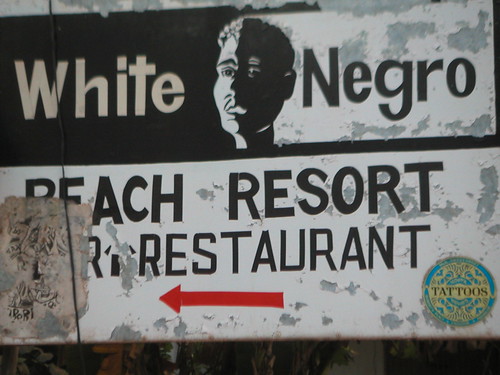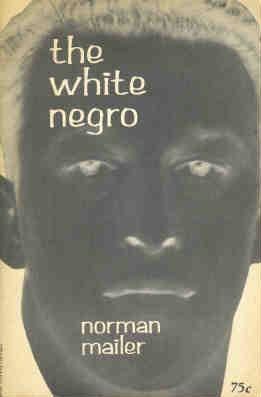N.W.A.--During the height of my recent Kenneth Clark period, as if I needed an antidote to so much refinement, I would unwind by playing Straight Outta Compton in my freezing, paper-cluttered office, safe from the rain of machine-gun fire--back in the day one was supposed to feel a little sheepish about this--before repairing to a peaceful slumber. I have always felt that this song was a sort of masterpiece of perverse genius; it seems mostly humorous now, but these people really did move in a scary, totally nihilistic world where a lot of appalling things happened, not infrequently at their own instigation one suspects. Nonetheless I am not aware of a more successful poetic effort in the language that relies so heavily on the F-word; there is nothing like it even in Shakespeare of which I am aware of. P.S. I know it became fashionable in after years to trash the late Eazy-E, but his solo is in my opinion by far the best part of the song.
The Floaters--Float On. I hadn't heard this song since about the time it came out, when, thanks to the marvels of satellite radio, it re-entered my life. There is not much that expresses the general atmosphere that was 1977 so entirely as this song. I was only 7 years old in 1977; it was a strange time, I think, to be a child. I was aware that certain major conditions of life in those years had only recently emerged among normal people--shameless cohabitation, lots of divorce, lots more crime, lots less church, inflation--but being a child I took these new conditions to be the normal state of existence, and everything that had presaged this upheaval to be irrecoverably lost. Indeed I still tend to view the world through this lens. In the back of my mind I always expect inflation and crime to return to the levels of the 1970s, I view religion observance as a curious but somehow artificial activity, and so on.
The rest is going to be divided between bubble gum and wistfulness.
Nancy Sinatra--Sugar Town. This is another one I had not heard in years; indeed, I can't say for sure that I had ever heard it, though I think I must have. I guess this song about drugs, though there is some dispute as to whether heroin or LSD is the experience being celebrated. Who cares? Whatever drug was the inspiration, it worked for me on this occasion. Sometimes--often I suspect in music--it pays more to be nonsensical than to strain to be clever. Nancy Sinatra, whose name is almost never invoked anymore without being accompanied by the tag "Diva of 60s Rock" gives off strong pherenomes of a particular character of that period involving a combination of leopard-skin underwear and artificially seasoned heavy breathing that is generally too much for me to handle, though the memory of it still seems to drive guys of a certain age wild with desire. On a further curious note, Nancy Sinatra at one time within the past ten years or so was the next door nieghbor of Morrissey in Los Angeles and frequently took tea at his house.
Here is a Czech version of the same song. This video is mostly nauseating but I like the umbrella sequence in the middle. The Czechs recorded their own versions of many famous anglophone hits during the Communist era which were still played regularly on the Czech oldies station, which was much my favorite station when I was there (though I know Eastern Bloc Communism was one of the blights of the whole 20th century, I personally would probably have been a pretty good, docile little communist). If you liked the moc krasna Zuzana Norisova--and I don't see much reason not to--here is her version of "Downtown". There is apparently an entire musical, "Rebelove", dedicated to the peculiar Czech dream of having had the 1950s American high school experience that was denied them. I don't think this is entirely a joke either. The Czech-language production of "Grease" was hugely popular when I was there (of course, so was "Jesus Christ Superstar"), and one of the schools at which my wife worked, and which is still in operation, was named the Elvis school of English, that great singer having been a hero of the school's founder.
If we are going to be on a foreign oldies kick, of course all roads eventually lead to Kyu Sakamoto and his immortal hit, Sukiyaki. What a tremendous chance hit it was! We as a culture at the present moment are in desperate need, in my opinion, of this exact kind of winsome foreign language hit, maybe from Turkey, or India, or Kazakhstan--someplace in a similar cultural transition from profound and esoteric local tradition to flashy globalized materialism as Japan was in the 50s and early 60s. This song has many of the same attractive qualities that the Japanese films of the period which were sent in contemporary times have; there was one in particular which I cannot remember the name of, it didn't have a big plot--the family was getting a television or something like that, and how this changed life for the boy--it had a lot of remarkable shots, very subtly placed, almost as background, of the power lines, high rise apartments, rail lines and stations, etc, being raised all over and around what is left of the traditional Japanese villages and landscape. This sounds like a cliche, but it was done very effectively, and it was not in the attitude of a protest or an aesthetic assertion so much as an elegy for a death, that, like all deaths, was inevitable. This song makes me feel something of the same.
George Hamilton IV--Abilene. Exquisite specimen of what Americans can do when they give a simple but pleasing impression some time to work on their minds. Ever since I have heard this I have thought Abilene would be a good name for a girl, or least a girl character in a book. One of the many brilliant things working in the favor of this song is that despite all of the trends shrinking the globe, in information, travel, etc, to most people in the Northeast U.S., even if they've been to Singapore 50 times, Abilene, and West Texas generally, still seem like remote, isolated places that have only a hazy reality. I know dozens of people who have been to India, but I don't anyone who has ever been to Abilene, where the women, many of whom are probably pretty darn good-looking, don't treat you mean, and the average high temperature in the summer is 94 degrees.
Tammy--The movies may demonstrate only too well why a lot of people were ready to blow up the whole society by the mid-60s, but I love the song. Alas, I had a Tammy of my own, too. I was not normally given to having crushes on older, married women when I was young, but there was one instance where I had occasion to experience this rather satisfying manifestation of love. We worked in the same office--everyone else in it except for her was dreary--and she was about eight or nine years older than I was. Her husband was a big hairy truck driver, quite the opposite of me. She was very into God, and talked about Him a great deal, but she was so pretty one did not mind--I would rather such a person talked to me about God anyway than about George Clooney's love life or going to casinos or any of the other topics which constitute most people's conversation. One night (we worked in the evening) I had had a few drinks before going to the job--alas, this was not unknown with me--and as I was feeling rather despondent about the state of the world except for a few people like Tammy I had the impulse to pluck some flowers out of a garden on the way--I think they may have been lillies--and present them to her when I arrived, which, unlike my usual practice, I actually did, such ease did the beauty and holiness of this lady set me at. She accepted them in a most gracious spirit, with a slight blush of momentary embarrassment perhaps, but I believe she understood my meaning in some degree of fullness, which has happened to me only a very few times in all my life. Besides which I think she may have liked me a little after her own manner.
I have even more songs but I will hold them off for another time.














